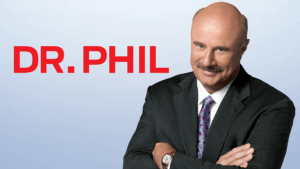From Grand Rounds to Dr. Phil: Can Psychologists Be on TV?
Five ethical issues and recommendations for psychologists working in the media.
The world is consuming and interacting with the media at increasingly high rates. According to Statistica, in 2017, Americans spent an average of over 12 hours a day (721 minutes) engaging with the media. Specifically, television was the most consumed medium, watched by an estimated 75 percent of the US population. Furthermore, according to 2018 data from the Pew Institute, the majority of U.S. adults now use YouTube (73 percent) or Facebook (68 percent); and, of those who use Facebook, more than half check this platform several times a day.

Source: CTV California
As the world increasingly engages with the media as a form of information and entertainment, psychologists and mental health professionals are often asked to bring their expertise to the public through media interaction. For example, psychologists may write an ongoing news column or blog, host a radio or television show, pitch topics to journalists about their research findings, be filmed as an expert on a given topic for television, or even be asked to host a television show like Dr. Phil. And for good reason—the media is an excellent platform to educate and inform the public about psychology and its real-world application. As provocative events occur in the world that are hard for people to understand (everything from political strife to mental health issues), psychologists can serve as experts to help process these realities. As a result, psychologists have a unique opportunity to represent psychology as a field; clarify to the public what we do and why it is so important; and, advocate for meaningful causes.
Despite the potential benefits of media engagement, many psychologists are highly reluctant to appear in the media because of the important ethical challenges media-based interaction can present. Like most medical professionals, psychologists are bound by clear ethical principles and legal regulations set forth by the American Psychological Association (APA) and other licensing boards. Below, I outline five key ethical issues relevant to media engagement for professional psychologists and offer clear recommendations for psychologists who work in the media about how to manage them.
Issue #1. Presenting in a Clinical versus Non-Clinical Role
Perhaps the most important issue for professional psychologists to address when engaging with the media is identifying and separating the clinical from the non-clinical role. This is certainly relevant to clinical psychologists and therapists, but it is also critical for non-clinicians as the appearance that you are doing clinical work in the media can be problematic if you are not licensed to do so.
Clinical work is generally defined as professional practice in which there is a clear doctor-patient relationship. For many psychologists, this is providing psychotherapy or conducting an assessment. Unbeknownst to much of the public, there are some key factors that describe the nature of a clinical relationship that are governed and described by the APA ethics code, laws, and licensing boards. Independent of the theoretical orientation of the psychologist, a clinical relationship can generally be described as having the following characteristics:
(1) It is a professional relationship between a psychologist and a client that exists because a service is being requested.
(2) It is a one-way fiduciary relationship, which means the relationship is a legally-binding professional relationship that exists to serve the needs of the client.
(3) It requires informed consent, meaning that the client and psychologist agree to certain terms and expectations about the nature of the working relationship.
(4) It is confidential, meaning that the psychologist cannot share identifying information about a client with anyone without written consent to do so — or — a legally acceptable reason for doing so.
(5) It involves payment to the psychologist for professional services provided to the client.
(6) It is generally focused on a goal or outcome that the client hopes to achieve through the work (e.g., overcoming a disorder, getting a diagnosis, working through early childhood trauma, understanding oneself at a deep level).
Although many clinical psychologists and other therapists do clinical work (e.g., conduct psychotherapy, assessments), many also do work that is NOT clinical in nature. This is any professional work that is not done in the context of a contracted doctor-patient relationship. For example, teaching, mentoring students, collaborating with colleagues, giving lectures at conferences, conducting research, and serving on research committees is generally not clinical in nature.
RECOMMENDATION #1: Psychologists must seriously consider whether media interaction is or “looks” clinical in nature. For example, involving current or former patients in a media-based context could be considered unethical even if the patient signs a waiver of consent. Additionally, given that many in the public do not know what “therapy” really is, media consumers may think that seeing a psychologist in the media means the psychologist is a clinician working in a therapeutic setting when, in fact, they are not.
Issue #2. Commenting on an Issue versus a Person
Psychologists are often asked to comment on current events or specific people’s life struggles. For example, if a famous celebrity is struggling with a personal issue, psychologists may be asked to comment on that person and his/her issues. The problem is that psychologists cannot ethically comment on someone they have not evaluated in a clinical role/relationship. Furthermore, if a clinical relationship exists, the psychologist cannot ethically break confidentiality. Consequently, it is generally unacceptable for professional psychologists to comment on a specific person in the media.
That said, psychologists can always address a general issue that may be of interest because of a current event. For example, when public suicides occur, psychologists cannot ethically comment on the specific individual who killed him or herself, but they can comment on suicide in general (warning signs, prevalence, etc.).
RECOMMENDATION #2: Commenting on issues that arise because of a current event is one of the best ways psychologists can engage with the media because it is an opportunity to educate the public about mental health and illness, advocate for a given cause, and disseminate meaningful, empirically-grounded information. Focus on the issue, not a specific person.
Issue #3. Ensuring Sufficient Competence to Comment
Consistent with the APA ethics code, psychologists can only offer a professional opinion about issues and topics about which we have sufficient education, knowledge, and training. Although most psychologists have a basic understanding of many themes relevant to the field, at times, they may be asked to comment on something about which they don’t have adequate competence. When this happens, they must seriously consider what they can and cannot say.
RECOMMENDATION #3: Psychologists who are not an expert on a given topic should not comment on it in the media.
Issue #4. Disclose Conflicts of Interest
Psychologists are ethically obligated to disclose situations in which they have multiple interests (financial or otherwise) that could impair or affect objectivity or ability to work professionally. For example, if a psychologist is seeking funding from a private agency to do a specific research project, it is possible (consciously or not) that the information is presented in a way that enhances the possibility of receiving approval from the funding agency or getting published in an top-tier journal. In such situations, psychologists are encouraged to be honest about any interests (professional or personal) that may cause professional conflicts to ensure the public and other parties are aware that the conflict exists. This is particularly important when engaging with the media to maintain a level of credibility.
RECOMMENDATION #4: Psychologists should disclose any conflicts of interest publically to media representatives and in public comments whenever relevant.
Issue #5. Separate Professional Media from Personal Media
In addition to working in clinical and non-clinical professional roles, many psychologists engage with the media in their personal lives (e.g., a personal Facebook or Twitter page) or have personal information readily available through the media (e.g., family information, home address, Yelp reviews, etc.). Although challenging, it is important for psychologists to consider how to handle overlap in professional and personal media content. For example, do you accept “friend” requests for current or former students? How do you network and manage collegial relationships online?
To complicate matters further, there are times when the professional and personal interests of psychologists are intertwined. For example, my mother has a terminal illness and I have collaborated with her on writings/videos that promote end of life options. I also use self-disclosure when I speak about some topics (e.g., self-deception and honesty).
Given the increased use of personal social media for psychologists, as well as the ease with which personal information is available about everyone online, it is critical for psychologists to carefully and deliberately articulate how they handle personal and professional interaction on social media. For clinicians, it is helpful to have a digital media policy for current and former clients as well as a general media policy that outlines your framework for media work.
RECOMMENDATION #5: Psychologists should clearly state how they handle personal and professional interaction on social media.
The Naked Truth is This:
Although media engagement is wrought with ethical challenges for professional psychologists, the benefits provided to the profession and the public are many. As my career has evolved over time, I have chosen to engage with visual and print media because of the great benefits Psychology can provide to professionals and the public alike. That said, such media interaction must be done deliberately and with care. I recently wrote a Professional Media Policy and Digital Media Policy for Current and Former Clients that outlines my conceptual framework, rationale, and policies related to work conducted in the media. These policies are licensed under a Creative Commons Attribution-Noncommercial-Share Alike 3.0 United States License. Any mental health professional is welcome to copy or adapt these policies to suit their professional needs with proper citation (copyright Cortney S. Warren, Ph.D.).
In all work, psychologists strive to uphold the following principles: 1) to help those they work with and do no harm; 2) to uphold professional standards of conduct; 3) to provide accurate, honest information; 4) to be fair and trustworthy; and 5) to respect the rights of others. With deliberate and careful action, professional psychologists can bring meaningful, empirically-supported information to the public through the media.
Copyright Cortney S. Warren, PhD, ABPP
TO READ MORE OF DR. CORTNEY'S WORK, SUBSCRIBE TO HER BLOG
Safe subscribe. You will have the opportunity to opt-out with every notice we send.

